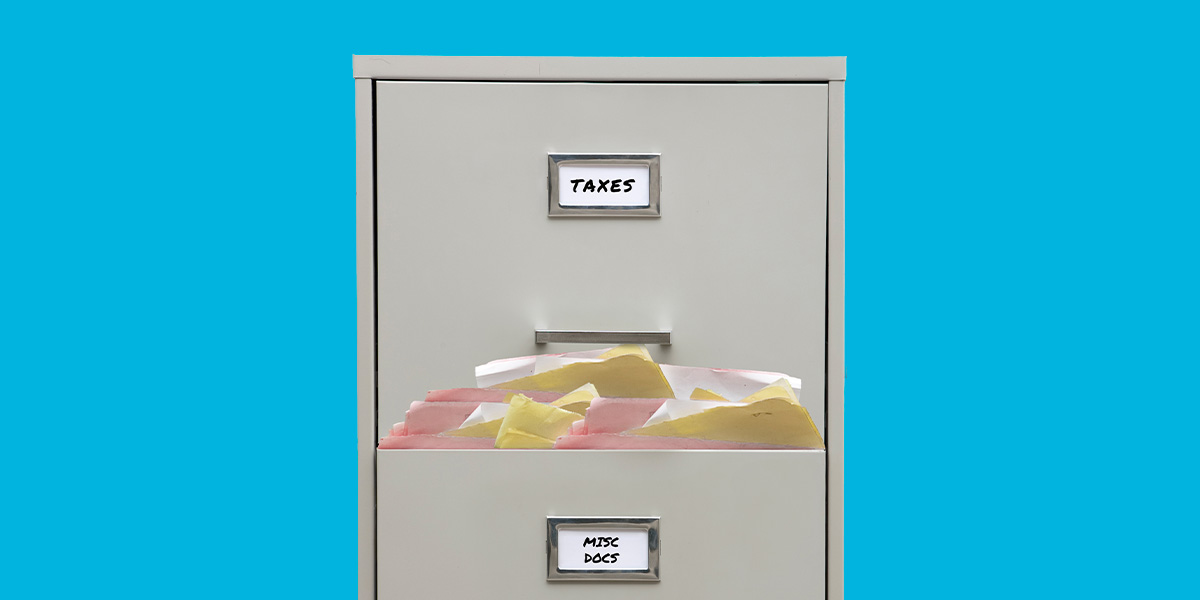-
Personal Banking -
Insights
Help Protect Yourself With the IRS “Dirty Dozen” List
Preparing for tax season has become an exercise in avoiding fraud, as financial criminals increasingly target taxpayers during a stressful time of the year. That's why the IRS releases its annual “Dirty Dozen,” a list of the 12 most common scams taxpayers should watch out for during the tax season.
“In past years, the Dirty Dozen list usually focused on actions that taxpayers or their advisors might take that could produce the ire of the IRS,” says Robin Boren-Coleman Sexton, a vice president and senior wealth planner at City National Bank. “But this year, the focus is on third parties and the fraud they might perpetrate.”
Nine out of 12 of the IRS warnings for 2024 concern fraud scams, a reflection of the increase in tax-related crime in recent years. In 2023, the IRS received 294,138 complaints of reported identity theft, in which bad actors filed fraudulent returns to receive refunds.
But having a return filed falsely under your name is only one of the ways that criminals may try to take advantage of you during tax season.
Consider some of the other rampant scams included in the IRS list.
Fake Charities
Charitable donations are a valuable strategy for reducing taxable income while helping an important cause. But increasingly, fraudulent groups are masquerading as charitable organizations to attract donations from unsuspecting contributors.
IRS Commissioner Danny Werfel said this scam is especially prevalent in the wake of major disasters. People want to help, and fraudsters pose as charitable organizations to take advantage of the situation, stealing both money and personal information.
Rather than falling victim, research any organization before donating and make charitable gifts only to well-established charities. The IRS provides a tool that can help donors verify a charity.
Phishing & Smishing
Fraudsters pose as the IRS or other trusted organizations via email (phishing) or text (smishing) to try to gain access to personal and financial information. These emails and texts may be very convincing— they often make you feel that a reply is needed urgently or may promise an unexpected refund—but the IRS warns against falling for the scam.
Avoid clicking on unsolicited links in an email or text, as doing so may install malware on your device. Also, don’t reply to unsolicited emails that request personal or financial information. Instead, visit the IRS website or your financial institution website separately (without clicking on the link within the message in question) and contact them to determine whether the communication was legitimate.
Bogus Tax Avoidance Strategies
A number of schemes promise to help taxpayers avoid paying taxes, such as exploitative agreements related to syndicated conservation easements and micro-captive insurance arrangements.
International Tax Schemes
Sometimes, these schemes have an international aspect, such as concealing money and digital assets in foreign accounts or using foreign captive insurance and foreign retirement accounts.
While such strategies may have aspects that are legal, it’s important to avoid schemes that seek “to completely eliminate a legitimate tax responsibility,” Werfel said. In many cases, the fraudster will aggressively promote the strategy because it will provide them a large profit. Instead, seek advice from a trusted tax professional.
Questionable Employee Retention Credit Claims
Fraudsters are aggressively promoting the Employee Retention Credit (ERC) to small businesses and other organizations, urging them to make questionable ERC claims.
In short, the ERC is a tax credit for certain businesses and organizations that had employees and were affected by the Covid pandemic. The IRS placed a moratorium on processing new ERC claims in Sept. 2023 but resumed them in Aug. 2024. This hold was placed as the IRS needed to catch up on verifying claims for the credit.
The agency cites predatory parties as a major source of this backup. It warns businesses and other taxpayers to avoid falling prey to unscrupulous promoters and make claims that are not valid, which could leave them in jeopardy of penalties, interest and potentially criminal prosecution for claiming the ERC when they don’t qualify and are not entitled to the credit.
Social Media Tax Advice
Some social media influencers are gaining followers and sponsorships by circulating inaccurate or misleading tax information on TikTok and other platforms. For example, the IRS says some social media personalities are encouraging people to misuse tax documents like Form W-2 or Form 8944, resulting in the submission of false or inaccurate information in hope of getting a refund.
Taxpayers who knowingly file fraudulent tax returns can face significant civil and criminal penalties. Rather than falling for these scams, the IRS recommends finding reliable tax information from its @irsnews social media accounts or from a trusted tax advisor.
Other Schemes on the Dirty Dozen List
The most recent edition of the list also contained 7 other schemes:
- Spearphishing attacks that focus on gaining sensitive information from businesses.
- Illegal tax schemes that target high-income earners, such as improper art deductions.
- Ghost preparers who encourage people to file false tax returns and then disappear, leaving the taxpayer to deal with any consequences.
- False fuel tax credits from third-party promoters designed to get fees out of taxpayers.
- Overly helpful third parties who steal information by offering to set up online accounts on the IRS website.
- Offer in compromise (OIC) mills that lead people into thinking they can resolve their debt with false methods.
Remember That Anyone Can Fall for Fraud
Thinking that you won't become a victim of fraud can be the first mistake you make.
“It’s important to remember that even the most sophisticated, intelligent individuals sometimes fall for these schemes,” Boren-Coleman Sexton commented.
To help protect yourself and your finances, she recommends two vital steps:
- Be vigilant about providing your personal or financial information. “Really check the source requesting the information,” Boren-Coleman Sexton said. “If it’s an email, it may look legitimate but might not be. Avoid clicking on links in an email and investigate before providing information to anyone.”
- Check with your tax advisor or wealth planner before pursuing any new tax-saving strategy. Some tax-saving strategies touted by members of the media or influencers may not work well for your specific situation. “It’s always best to get professional advice ahead of time rather than have to work to unravel a strategy that wasn’t helpful or even legitimate,” Boren-Coleman Sexton says.
If you suspect that you've become a victim of a tax scheme, report it immediately to the IRS.
This article is for general information and education only. It is provided as a courtesy to the clients and friends of City National Bank (City National). City National does not warrant that it is accurate or complete. Opinions expressed and estimates or projections given are those of the authors or persons quoted as of the date of the article with no obligation to update or notify of inaccuracy or change. This article may not be reproduced, distributed or further published by any person without the written consent of City National. Please cite source when quoting.
City National, its managed affiliates and subsidiaries, as a matter of policy, do not give tax, accounting, regulatory, or legal advice, and any information provided should not be construed as such. Rules in the areas of law, tax, and accounting are subject to change and open to varying interpretations. Any strategies discussed in this document were not intended to be used, and cannot be used for the purpose of avoiding any tax penalties that may be imposed. You should consult with your other advisors on the tax, accounting and legal implications of actions you may take based on any strategies or information presented taking into account your own particular circumstances. Trust services are offered through City National Bank.





